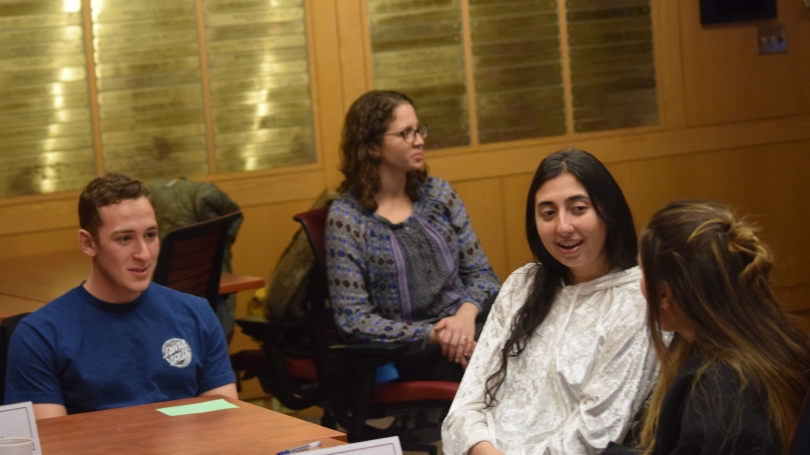
- Public Policy
- Leadership
- Funding
- News & Events
- About the Center
Back to Top Nav
Back to Top Nav
Back to Top Nav
Back to Top Nav
RGLP has broadened my perspective on culture and the role it plays in not just academic and professional settings, but the world in general. Our world today is extremely interconnected thanks to the development of technology. We can easily communicate with someone from across the world or travel to another continent in a short amount of time, and although this unquestionably has many benefits, conflicts are bound to arise when there is a lack of intercultural understanding. As demonstrated during one of the RGLP presentations, having the ability to see things from multiple perspectives is an incredibly important skill to possess. A cultural phenomenon could be viewed as sexist or disrespectful from an outsider’s perspective but can have a completely different and positive meaning behind it. This is where the importance of asking questions and giving the benefit of the doubt come into play. RGLP has taught me that we all have inherent biases, but it is important in this day and age to be mindful of the biases that we have and to not let them cloud our judgment and logic. It is okay to not know things and to ask others for insight. Equally as important, we cannot assume that others know about our culture as much as we do.
We went to a comedy show as one of our activities on the immersion trip to Boston. Mo Amer, an American Muslim with Palestinian origin, was the main act of the show, and he had two other comedians, either Arab or Muslim, open his show; most of their comedic content revolved around the hardship and experiences Muslims and people of color have to face, particularly in a post 9/11 era. Coming from a Muslim background, I found the content of the show to be hilarious, relatable, and enlightening, as did my peers; however, I wasn’t enlightened in the same way my peers were. Based on what I heard during the reflection discussion, my peers learned much about the general norms of Muslim “culture” whereas I learned about the things they weren’t familiar with that I thought was common knowledge. The immersion trip made me realize how much I assume others to know and how detrimental this mindset can be when communicating. We should ask others about their culture without any guilt or shame, and we should give the benefit of the doubt and actively educate others about personal cultural norms; by doing this, we can better understand and empathize with each other in the highly interconnected world we live in today.